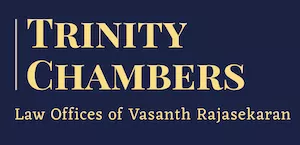- within Litigation and Mediation & Arbitration topic(s)
- with readers working within the Construction & Engineering industries
- with readers working within the Construction & Engineering industries
- within Technology, Insolvency/Bankruptcy/Re-Structuring and Corporate/Commercial Law topic(s)
Introduction
In Jaiprakash Hyundai Consortium v. SJVN Ltd., [2025: DHC: 4460-DB] the Delhi High Court held that an award rendered by a Dispute Review Board ("DRB") under a contractually agreed mechanism could be treated as an arbitral award under the Arbitration and Conciliation Act, 1996 ("Arbitration Act"). However, the High Court dismissed the petition seeking enforcement of such an award on the ground that it was filed beyond the prescribed limitation period.
The dispute arose in the context of a hydroelectric project agreement that contained a multi-tier dispute resolution clause. The DRB rendered its decision in favour of the contractor in 2006, which was not implemented by the employer. Although litigation ensued over the nature of the DRB's decision, the High Court ultimately held that the award was enforceable as a decree from the date of its rendering. The High Court rejected the contention that the period of limitation would commence only upon a judicial declaration treating the DRB's decision as an arbitral award.
This judgment clarifies the enforceability of DRB decisions under the Arbitration Act and reiterates the settled position that delay in approaching the court cannot be justified merely on the basis of parallel litigation.
Brief Facts
The dispute arose under a contract awarded to the Jaiprakash Hyundai Consortium (the petitioner) by SJVN Ltd. (the respondent) for civil and hydro-mechanical works relating to a hydroelectric project. The contract contained a multi-tier dispute resolution clause, under which disputes were first to be referred to the DRB, and failing resolution, could be escalated to arbitration.
A dispute regarding extension of time and associated claims was referred to the DRB. On 25 May 2006, the DRB issued its decision, partly allowing the petitioner's claims. The respondent did not implement the DRB's recommendation and no arbitral proceedings were initiated within the stipulated time. The petitioner subsequently sought enforcement of the DRB's decision by filing a petition under Section 36 of the Arbitration Act.
In the interim, the respondent had approached the Himachal Pradesh High Court in a separate proceeding to challenge the applicability of the arbitration clause in relation to the DRB's decision. That proceeding culminated in a judgment in 2019, wherein the Himachal Pradesh High Court held that the DRB's decision could be treated as an arbitral award, having been rendered through a binding contractual process.
Following this, in 2022, the petitioner filed the present enforcement petition before the Delhi High Court. The respondent opposed the petition, arguing that it was time-barred, since the limitation period had commenced in 2006, when the DRB issued its decision.
Issues and Submissions
The principal issue before the High Court was whether the enforcement petition filed in 2022 was barred by limitation, given that the DRB had rendered its decision in 2006. A secondary issue was whether the period of limitation could be said to commence only upon a court's recognition that the DRB's decision had the status of an arbitral award.
The petitioner submitted that although the DRB rendered its decision in 2006, there was an ongoing dispute between the parties as to whether the DRB's recommendation constituted an arbitral award. It was argued that this question was only settled in 2019, when the Himachal Pradesh High Court held that the DRB's decision was an award enforceable under the Arbitration Act. The petitioner contended that the limitation period for enforcement must therefore be reckoned from the date of that judgment.
It was further argued that the earlier ambiguity regarding the legal character of the DRB's decision had prevented the petitioner from seeking enforcement earlier. The petitioner relied on the principle that limitation must be construed reasonably, particularly in the context of arbitration where procedural rules differ from ordinary civil suits.
On the other hand, the respondent contended that the DRB's recommendation was treated by the petitioner as binding from the outset and that no arbitral reference was initiated within the period prescribed under the contract. It was submitted that once the decision was accepted as final, the limitation period began to run from 2006. The respondent relied on settled principles of limitation law to argue that ignorance of law or legal characterisation does not extend limitation. It was further argued that the 2019 judgment did not create a fresh cause of action but only confirmed what was already legally evident.
Findings of the High Court
The High Court held that the enforcement petition was barred by limitation, having been filed more than three years after the date of the DRB's decision. Referring to Article 137 of the Limitation Act, the High Court observed that the limitation period for filing an enforcement petition under Section 36 of the Arbitration and Conciliation Act is three years from the date when the right to apply accrues. In this case, that date was 25 May 2006, when the DRB rendered its recommendation and neither party sought arbitration thereafter.
The High Court rejected the petitioner's argument that the limitation period began only after the 2019 decision of the Himachal Pradesh High Court. It held that a judicial pronouncement recognising the legal nature of a decision does not postpone the accrual of the right to enforce it. Once the DRB's recommendation was accepted as final and binding under the contract, the petitioner could have sought enforcement at that stage. The fact that the respondent did not comply did not defer the petitioner's right to apply; on the contrary, it triggered it.
The High Court also clarified that the arbitration clause permitted the DRB's decision to become final and binding if not challenged by either party within a stipulated period. Since no challenge was made, the recommendation became binding and capable of enforcement under the Act. The petitioner's reliance on subsequent litigation to justify delay was held to be misplaced.
Accordingly, the High Court dismissed the petition as time-barred, without entering into the merits of the claim.
Comment
The decision in Jaiprakash Hyundai Consortium v. SJVN Ltd.1 sets out the importance of timely enforcement of arbitral awards and reinforces the principle that the law of limitation operates independently of subsequent judicial clarification. Once a dispute is adjudicated and a binding decision is rendered, the limitation period for enforcement begins to run from that date, regardless of later disputes over the legal character of the decision.
The High Court's reasoning also reflects a broader trend of discouraging delays under the guise of legal uncertainty. The petitioner's contention that it was awaiting judicial confirmation of the DRB's status was found insufficient to override the express timelines under the Limitation Act. This reaffirms the settled position that uncertainty about the legal position does not stop the clock from running. Litigants are expected to act promptly and cannot defer enforcement on speculative grounds.
Vasanth Rajasekaran is the Founder and Head of Trinity Chambers, New Delhi. Harshvardhan Korada is a Counsel at Trinity Chambers, New Delhi.
Footnote
1. Jaiprakash Hyundai Consortium v. SJVN Ltd., [2025: DHC: 4460-DB].
The content of this article is intended to provide a general guide to the subject matter. Specialist advice should be sought about your specific circumstances.



